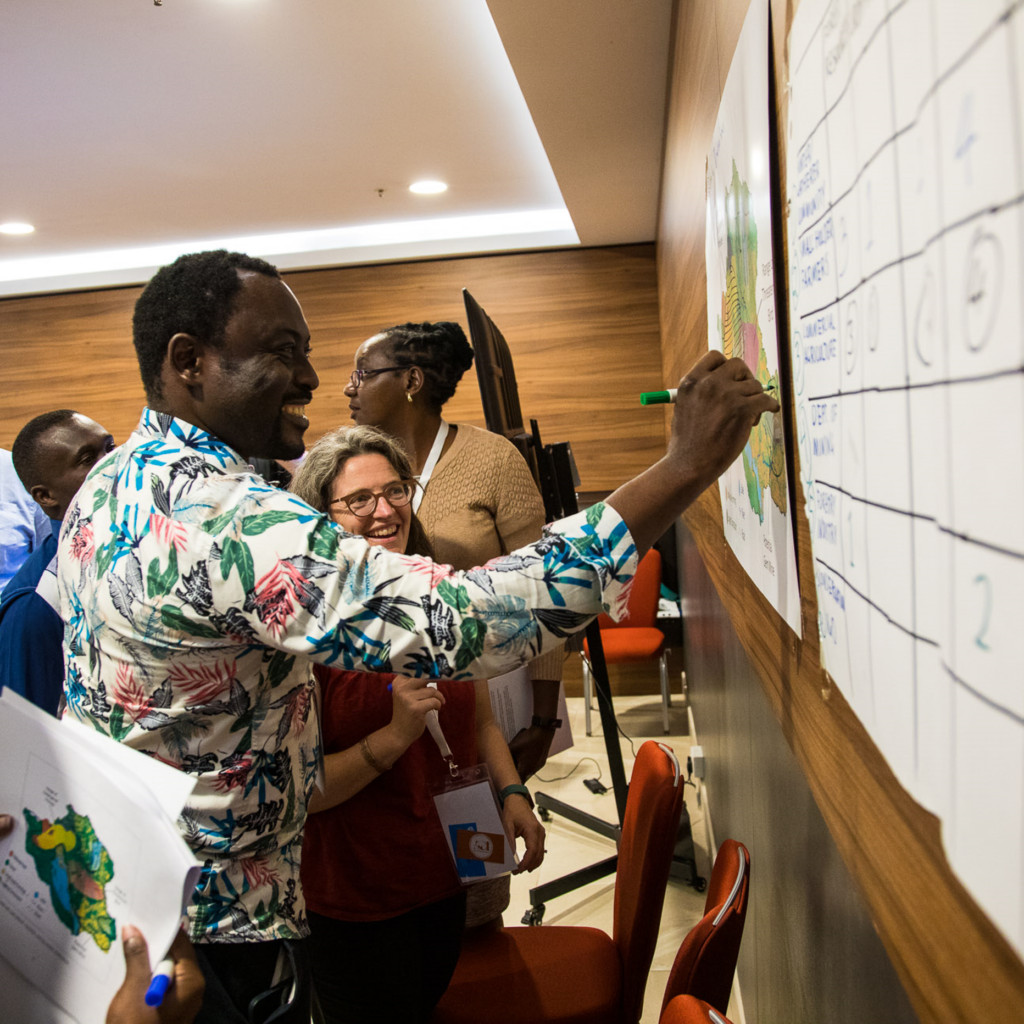
The inaugural Africa Protected Areas Congress (APAC) held on July 18-23, 2022 in Kigali, Rwanda underscored the important role that protected areas play in conserving nature and delivering vital life-supporting ecosystem services such as clean water, air, food production and soil formulation. Attended by more than 2400 participants from across Africa and beyond, the conference declaration dubbed the Kigali Call to Action, represented a consensus position, and a renewed hope and firm commitment, for conserving Africa’s protected and conserved areas.
This inaugural congress provided ABCG an opportune platform to share and promote its tools and approaches that have been developed by this collaboration of conservation organizations that include: African Wildlife Foundation, Conservation International, The Jane Goodall Institute, The Nature Conservancy, Wildlife Conservation Society, World Resources Institute and World Wildlife Fund, dedicated to jointly tackle conservation issues for greater results and impact.
ABCG tools and approaches shared at APAC
Land Use Planning Training Methodology
ABCG convened a conservation clinic on land-use planning with the objectives of: maximizing the use of the research and tools developed for land use planning across Africa; building land use planning capacity; promoting the land use planning training course to improve land-use planning skills across Africa, and lastly to build connections among land use planning stakeholder.
“ABCG identified land use planning as one of the most critical needs to address the forces behind habitat loss on the continent such as expansion of cultivation and infrastructure development”, said David Williams, Director of Conservation Geography, African Wildlife Foundation.
Land-use planning is critical for identifying sustainable, climate-smart, win-win development strategies that minimize encroachment on high conservation or ecological value land while meeting multiple land-use objectives. However, knowledge and capacity for land-use planning is insufficient to meet needs across Africa. At this clinic, ABCG shared the Land-Use Planning Training Methodology that ABCG experts have developed. Participants gained knowledge on the theory and practical starting points of biodiversity-sensitive land-use planning. Participants also heard the experiences of countries who have applied this framework and how the method is supporting sustainable development in those countries.
The tool is applicable to individuals, organizations, governments, and other stakeholders interested in applying land use planning. for more information contact: Kendall Jones (krjones (at) wcs.org)
Watch below the video highlights of the session
Global Change Impacts on Biodiversity Tools and Approach
In another conservation clinic, ABCG shared the approach that ABCG experts have been using to identify and develop climate adaptation projects that are helping farming, livestock and fishing communities in different countries in Africa, adapt to climate change, improve their overall wellbeing and protect biodiversity. The direct impacts of climate change on ecosystems and biodiversity are well known but, the indirect impacts resulting from human coping responses are less well known. ABCG members and their partners have conducted over 650 surveys in 19 communities throughout sub-Saharan Africa and found that more than a third of the climate change coping strategies could potentially have a negative impact on biodiversity.
“If you look at the landscapes we have covered in Africa and the projects that we have done in Africa, you will realize that there is no way any one organization could have realized this independently, and this is the power of the ABCG collaboration” said Nikhil Advani, Director Climate, Communities and Wildlife at World Wildlife Fund.
ABCG technical teams shared this detailed approach and process of identifying indirect climate impacts from human coping responses on biodiversity and developing on the ground solutions. These processes are undertaken with the heavily involvement and guidance of communities.
Watch below the video highlights of the session
ABCG photos from the congress are available here: ABCG Flickr

